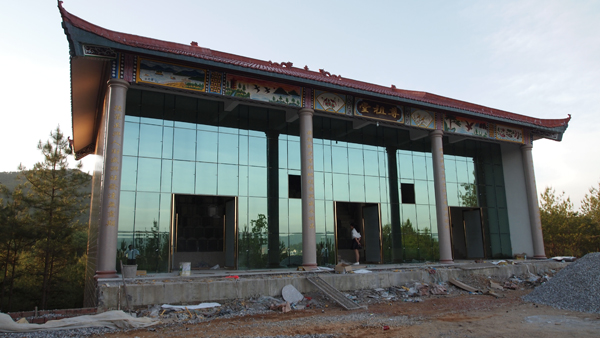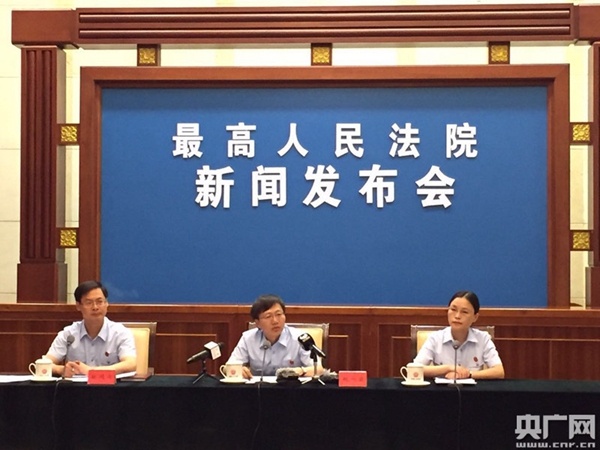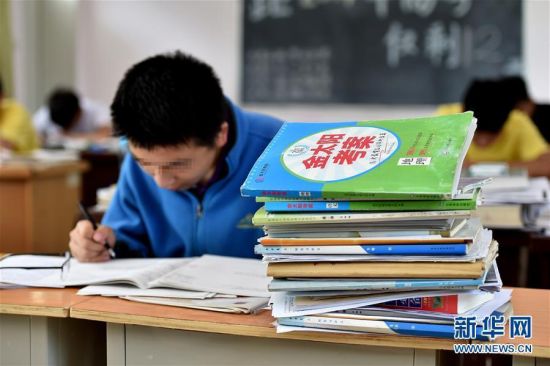Guideline helps county cut costs of weddings, funerals
 |
|
A mausoleum is under construction in Huichang county’s Bingqiu village in Jiangxi province. [Photo/China Daily] |
Huichang county in Jiangxi Province is taking measures to curb the soaring costs of betrothal gifts and extravagant wedding and funeral ceremonies, which have plagued its villages for years.
With the average cost of betrothal gifts in the county skyrocketing to 300,000 yuan ($44,000) this year, the old tradition of giving money to a bride’s parents has become a huge burden for a groom’s family. “Getting married is now one of the two major causes of poverty in the county – the other being illness,” said Xu Yongchun, a county official.
As part of a plan to reduce poverty and transform outdated tradition, the county government has issued a guideline, limiting dowries at 60,000 yuan and calling on villagers to scale down their wedding banquets to no more than 10 tables, according to Zeng Pengfei, director of the Huichang civil affairs department. He said the government is setting up village-level wedding and funeral councils to ensure implementation of the measures.
The measures were introduced in Wenwuba township’s Gufang village in March. “Our village has nine communities based on family names. The nine council members we elected, one from each community, are all highly respected and enlightened elders,” said Zou Zhulin, head of Gufang’s wedding and funeral council.
“The task of council members is to raise awareness of the guideline, which involves helping organize and supervise wedding ceremonies, making sure they don’t leave families penniless. But it’s not easy to change a deep-rooted tradition,” Zou said.
However, Huichang has made significant progress in simplifying funeral services and promoting green burials. Xijiang township’s Bingqiu village is a pioneer in terms of mausoleums.
Villagers discovered the benefits of mausoleums after the government built one for them. In fact, the 271 residents voluntarily raised funds to build a second one, according Wang Tianfa, vice-chairman of the village’s wedding and funeral council. They each contributed 2,500 yuan for the project, which is also the price of one niche in the mausoleum.
The two-story building, which is under construction, is situated on top of a hill.
“The mausoleum covers just 190 square meters, but will house more than 350 urns. It requires much less land than a cemetery,” Wang said. “It also eases the burden on younger generations. Traditional funeral services cost up to 50,000 yuan, while cremating a deceased person and storing their ashes in a mausoleum costs only a few thousand yuan.”
Bingqiu’s new practice has attracted the attention of neighboring townships and villages. “Since the beginning of this year, we have received more than 20 groups of visitors to our mausoleum,” Wang said.
The county government said it plans to expand the practice in all of its villages.


